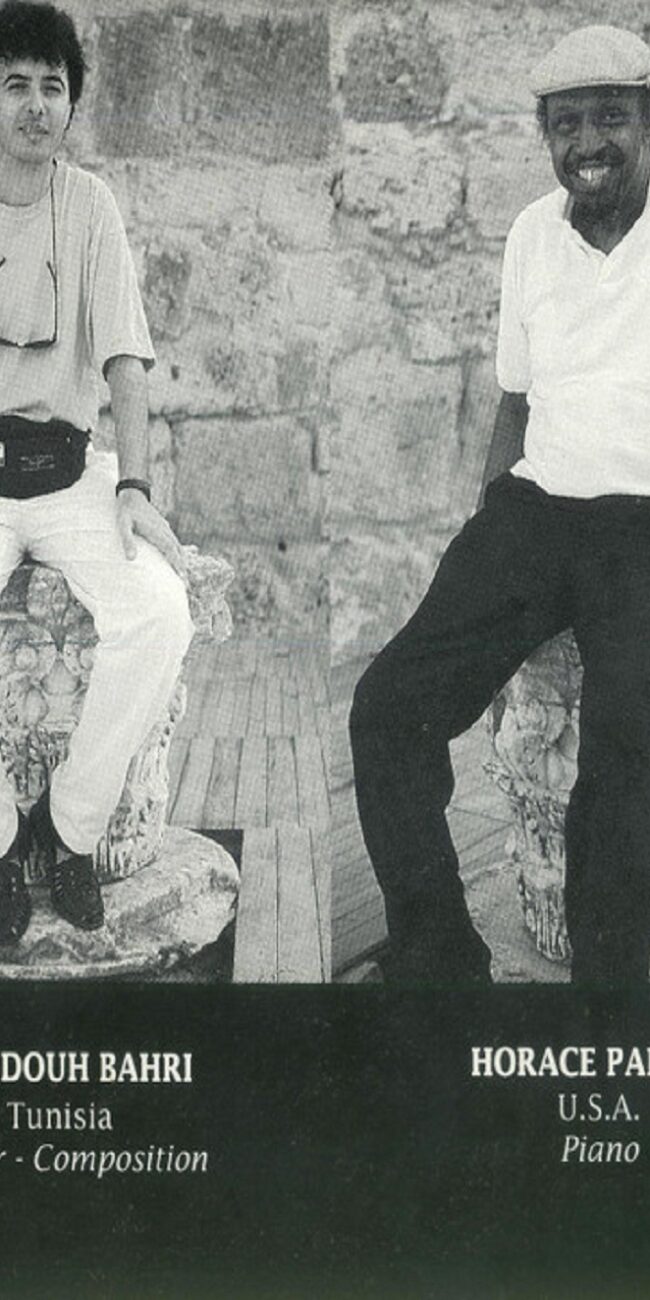
AMMAR 808 – CLUB TOUNSSI
When Tunisian producer Sofyann Ben Youssef, better known as AMMAR 808, released Maghreb United in 2018, he unsettled the boundaries of contemporary electronic music. His sound merged the seismic weight of the TR 808 drum machine with the voices and instruments of North Africa, creating a universe that felt at once ancient and futuristic. In 2020 he returned with Global Control / Invisible Invasion, a work that drew on South Indian classical traditions and reimagined them through electronic futurism, expanding his vision beyond the Maghreb. By the time his third album Club Tounsi appeared in May 2025, Ben Youssef had turned his gaze homeward and reimagined one of Tunisia’s most charged and historically marginalized genres: Mezoued.
AMMAR 808’s latest work Club Tounsi is more than an album. It is an act of cultural excavation, a reimagining of memory, and a bold proposal for the future of sound. Tunisian producer Sofyann Ben Youssef, who has long inhabited the liminal space between tradition and futurism, here turns to the folk idiom of Mezoued, a form once dismissed as music of the ghetto yet ultimately inseparable from the heartbeat of Tunisia itself.
The roots of Mezoued reach back to the upheavals of mid twentieth century Tunisia, when waves of rural migrants flooded the capital and carried with them melodies of exile and survival. In its rawest form, Mezoued is a complex weave: the plaintive call of the bagpipe made from goatskin, the relentless pulse of the darbuka, the melismatic sighs of Arabic maqam, and the fervor of Sufi devotion. Its lyrics chronicle dispossession, longing, and love’s violence, but its rhythms insist on celebration, demanding bodies rise against despair through dance. Shunned by the state and banned from television, Mezoued nevertheless grew from the margins into a mirror of Tunisian identity, its very persistence a quiet revolution.


To achieve this, he convened a collective of Tunisian musicians whose artistry embodies different tributaries of the tradition. The conservatory trained lyricism of Mariem Bettouhami, the unvarnished Mezoued authenticity of Mahmoud Lahbib, and the spiritual resonance of Brahim Riahi’s Sufi background form a trinity of voices that refract Mezoued’s history through multiple prisms. Their presence insists that Club Tounsi is not the work of one auteur but a polyphony, a chorus of Tunisia itself.
The repertoire he selects is telling. Instead of unearthing obscurities, he chooses songs etched into the collective memory. To reinterpret them is to confront continuity head on. Take “Aman Aman,” whose traditional form pulses with urgency. In Ben Youssef’s hands it becomes a dirge, stretched into a slow cinematic lament. Synth arpeggios creep like shadows across the soundscape, Bettouhami’s voice is filtered and fractured, and the bass descends into subterranean depths. It is not merely a cover but a metamorphosis, one that makes audible the melancholy hidden within the familiar. The result is both a restoration and a rupture, a gesture that allows new generations, who may know only the club, to encounter the weight of ancestral song.
If Mezoued was once stigmatized as the voice of the underclass, Club Tounsi insists on its universality. Its hybrid fabric, woven from Sufi chants, malouf strains, and the syncopation of everyday survival, is precisely what allows it to transcend boundaries. Ben Youssef’s project reveals the genre as an archive of collective memory, but also as an energy source for future invention. The album demonstrates that cultural forms are not fixed relics but living organisms capable of mutation, capable of traveling through time.
Listening to Club Tounsi is to enter a space where history and futurity collapse into one another, where the ghosts of Tunisian streets dance beside machines that do not tire. It is an argument for music as a vessel of resilience, a refusal to let stigma silence joy, and an assertion that rhythm itself can carry the weight of a people’s memory. In its insistence on continuity through transformation, the album resonates as both scholarship and prophecy.
To experience it is to stand at the threshold of a club that is also a shrine, to feel the ancestral pulse collide with the synthetic throb of the future. In that convergence lies AMMAR 808’s genius. He does not ask us to choose between past and present, tradition and experiment, ghetto and global. He invites us to inhabit them all at once. And when the Fezzani rhythm erupts, lifting hands and voices into the midnight air, we are reminded of music’s oldest truth: that survival itself is a form of celebration.



‘Club Tounsi’ is released by Glitterbeat







